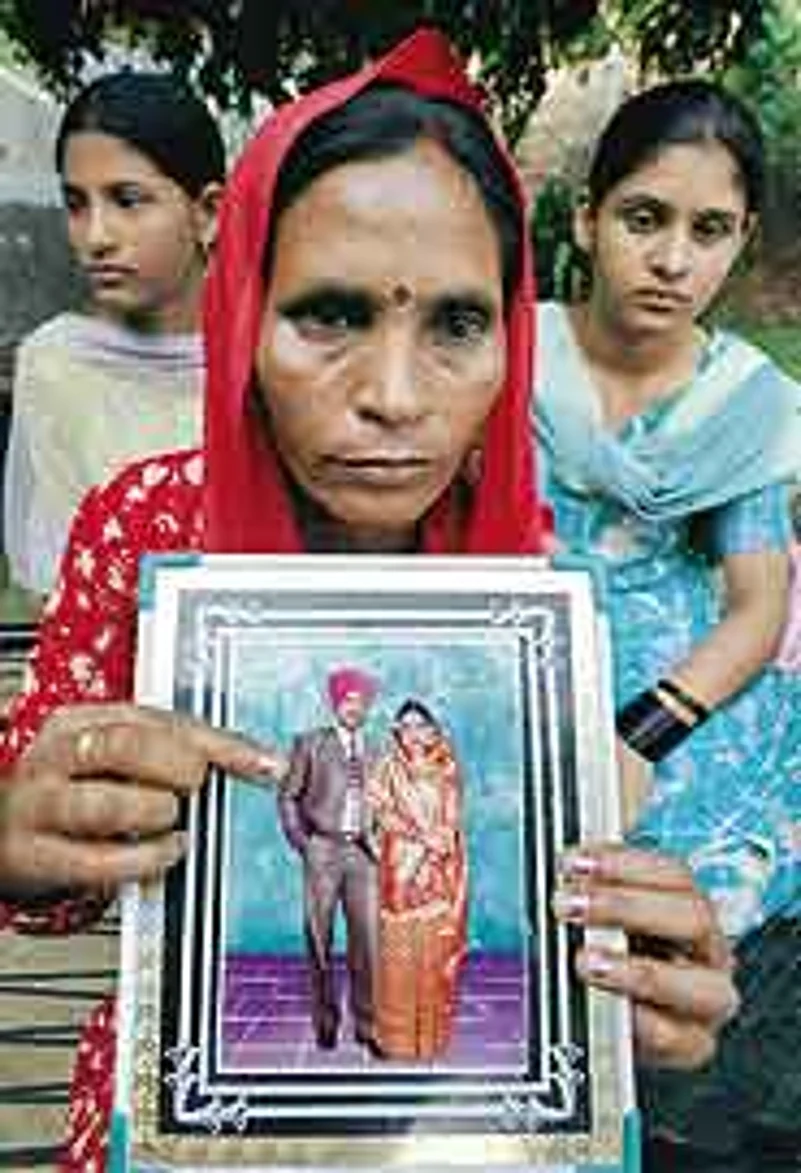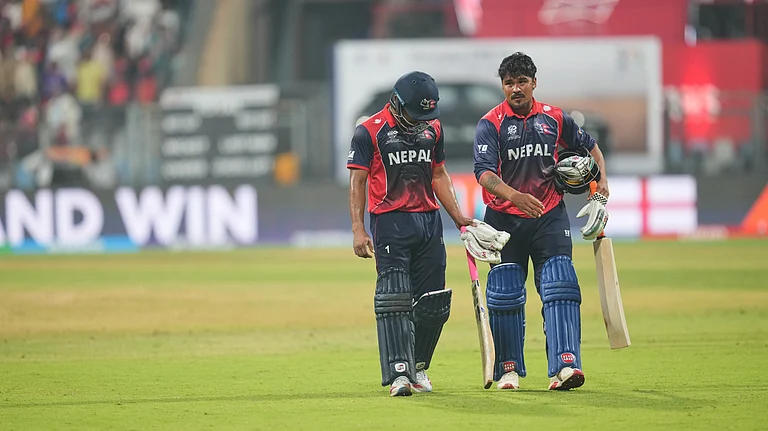But it's circa 2005; the Indo-Pak peace process has gathered fresh momentum. Ordinary Pakistanis feel Sarabjit should have the benefit of the doubt. Doesn't he claim he's Manjit Singh? Could his have not been a case of mistaken identity a la Veer Zaara? There have been clemency appeals for Sarabjit. They argue it's payback time for Pakistanis, recalling the reception two-year-old Noor Fatima got in July 2003 for a heart operation in India.
These are still early days to determine Sarabjit's fate. But his plight (he has already served 15 years in jail) has prompted the two somnambulant governments to release civilian prisoners who have served their sentences and whose national identities (Indian or Pakistani) have been determined. But Sarabjit's case is different from theirs; he's an alleged terrorist accused of engineering four bomb blasts in which dozens were killed. Can the Pakistan government allow such a man to walk away free?

Legal experts say there are two possible ways of saving Sarabjit. One, according to the country's Shariah laws, the heirs of those killed in the blasts, said to be engineered by Sarabjit, could pardon him, either on payment of blood money or without it. Second, President Pervez Musharraf could refuse to sign the warrant of death sentence and grant him pardon. Human rights activist Asma Jahangir points to the third way: both India and Pakistan could abolish capital punishment. She says Indian Prime Minister Manmohan Singh should announce the abolition first, consequently making it easier for Musharraf to follow suit.
But the Director-General of the Institute of Strategic Studies, Dr Shirin Mazari, asks a rhetorical question: "Is the life of an Indian spy more precious than that of Pakistani terrorists?" She, as do many others, points to the recent hanging of a terrorist found guilty of attempting to assassinate Musharraf; five others have been sentenced to life imprisonment. Their families, too, had grieved before TV cameras. How come their cases didn't evoke sympathy in the government, she asks.
Mazari sets out her maximal position thus, "Sarabjit is a criminal, a spy from an enemy country, who was responsible for the death of several Pakistanis. If Pakistanis sentenced to death are regularly sent to the gallows, then why not an Indian spy? Is he above the law of the land? Would the Indians extend the same treatment to Pakistanis? There are many Pakistanis languishing in Indian jails with the Indian government showing no magnanimity, even though the Pakistani bureaucracy, too, has been inhumanely lethargic on this count. And these poor Pakistanis have not even been incarcerated in India on proven charges of spying!"
Mazari does have a point. For instance, five members of the Hashmi family were arrested in Agra because they didn't have the visa to visit the city. Their crime: they wanted to view the Taj Mahal. Instead of deporting them, the Indian government threw them in jail, where they still languish. Here are their names: Mumtaz Ahmed Hashmi (passport No KC-429276), Humera Mumtaz Hashmi (KE-005518), Farhan Hashmi (KD-995980), Nauman Hashmi (KD-995979) and Hina Mumtaz Hashmi (KD-995898). Unlike Mughal emperor Shah Jahan, who at least had the fortune of marvelling at the glory of the Taj Mahal during his incarceration, these five Pakistanis have only the bare walls of a jail to stare at.
Or, take Najma Parveen, an Indian national married to a Pakistani, Mohammad Shahid.To Najma were born four daughters and a son. For better economic prospects, the family decided to settle down in Najma's hometown in India. Disaster struck them: Shahid was declared a spy and arrested; so were his wife and even the children! Her plight was highlighted in the Pakistani media in the weeks following the court's decision to hang Sarabjit.
At present, there are 611 Pakistani prisoners in Indian jails. Of these, the Indian government has provided consular access to 389 prisoners; for the remaining 222 a request has been made. "Out of 389 prisoners who have been provided consular access by India, so far the ministry of interior has only been able to confirm the national status of 173 prisoners and is awaiting confirmation about others from the provincial governments," a government spokesman told Outlook. There are reports that at least 24 Pakistani prisoners in India have lost their mental balance.
Officials here complain that often the information they receive is insufficient. For instance, what they receive are photos of prisoners holding slates furnishing their names and fathers' names in Hindi. It consequently becomes difficult for the government to track down their home addresses in Pakistan. So much so that even the prisoners' biodata forms do not contain the date of arrest of these prisoners by Indian law enforcement agencies, when they were put in jail or what the status of their case was. Some say that the Pakistani diplomats—who furnish minimum information to Islamabad, consequently delaying the determination of prisoners' nationality—are equally culpable.
The majority of prisoners lodged in Indian jails are guilty of overstaying in India, or for carrying fake currency, or visiting those Indian cities not mentioned in their passports stamped by the Indian High Commission in Islamabad. The Sarabjit Singh case may have brought a whiff of hope into their padlocked cells.





















